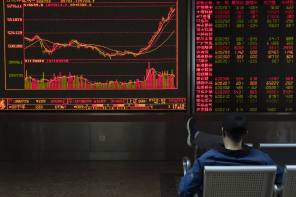For the past year, I have enjoyed not needing to stop at petrol stations; instead charging at night with electricity from a green supplier – so the energy we take out of the grid is replenished with energy from wind, solar and hydroelectric sources.
Over the past few weeks, watching as queues for petrol and diesel snake around the block, that decision has felt like a godsend.
According to the Financial Times, some 28m electric vehicles are expected to be sold globally in 2030. Last year, there were just 2m.
The Guardian reported that electric vehicle sales in September alone were close to the figures for the whole of 2019, with Auto Trader highlighting a surge in interest after September 24, when panic buying of petrol began.
Meanwhile, I have become the go-to source for friends and colleagues who have been mulling the switch for some time and have now been spurred into action.
Our real range is about 220 miles of motorway driving is the answer and yes, ‘range anxiety’ quickly fades as an issue unless you're on a longer journey, if you’re interested.
But here’s the quandary: while the carbon footprint to operate an electric vehicle using renewable energy is far lower than that of a traditional vehicle, the manufacturing footprint is up to 60 per cent higher, mostly due to the battery. With demand surging, the CO2 impact of production will grow significantly.
In addition, while the experience of driving an electric vehicle is fantastic for local journeys, try finding an available and working charger on the M4 on a bank holiday Monday. The charging network is already lagging way behind demand, let alone with tens of thousands of additional vehicles being registered every month.
These two challenges – balancing long and short-term impacts, and the expectations vs the reality of ownership – are also relevant when advisers are talking to clients about sustainability in their portfolios.
We know from psychometric profiling at Dynamic Planner that sustainability is ‘somewhat’ to ‘very’ important to more than 70 per cent of clients, but reflecting that in investment recommendations is not straightforward, and conversations about the trade-offs are important.
Yes, a carbon neutral portfolio today might sound appealing, but to get to net zero we need to build, manufacture and transport a lot of infrastructure, goods and equipment – and therefore to spend a lot of carbon in the process.
Building an investment strategy around renewable energy or green tech investments could also seem attractive, but these are emerging, rapidly evolving industries and stock prices can be volatile. Excluding significant proportions of the available investment universe reduces diversification and potentially increases risk.





